Curiosities and Challenges about Rock n Roll
Do you like Rock n Roll?
Would you like to see more curiosities like these..
Rock and Roll emerged in the 1950s, resulting from the mixing of black music styles with American folk and country. Big....
In the 1960s, iconic rock artists and bands emerged, such as The Doors, Jimi Hendrix, Janis Joplin, Bob Dylan and..
In the 1970s, rock reached its peak as a global style, but pop music emerged as a competitor. Rock underwent....
So.. How about a Challenge on the Best Quiz Platform in the World?
It's a sonic revolution that transcends time.
Get to know a little about everything and bet on your knowledge in incredible challenges and duels..
Join the betspot.zone community, accumulate bts (bets) and even compete for prizes..
Discover some interesting facts about Rock n Roll..
music Quiz - music Curiosities -music Challenge - - Frequently asked questions about Rock n Roll
Rock and Roll emerged in the 1950s
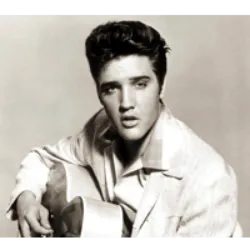
Rock and Roll emerged in the 1950s, resulting from the mixing of black music styles with American folk and country. Big names like Johnny Cash and Little Richard played crucial roles in the development of Rock and Roll, but musicians like Bill Haley, Buddy Holly, Chuck Berry, Elvis Presley and Jackie Brenston were the ones who really shaped the genre's sound and transformed the music and music. artist-product in the recording industry at the time. The starting point can be placed in 1951, in Mississippi, when Jackie Brenston, saxophonist in Ike Turner's band, recorded what is considered the first rock track, "Rocket 88". Later, Bill Haley and his band popularized the "Rockabilly" aspect. Elvis Presley, with his energetic style and bold look, became a global icon with hits like "Heartbreak Hotel."
publicity
In the 1960s, iconic rock artists and bands emerged
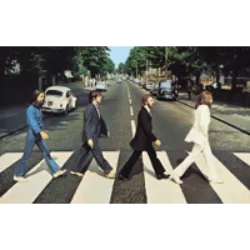
In the 1960s, iconic rock artists and bands emerged, such as The Doors, Jimi Hendrix, Janis Joplin, Bob Dylan and Velvet Underground. The British The Beatles and The Rolling Stones were pioneers, the Beatles representing Beatlemania with a conventional stance, while the Rolling Stones, led by Mick Jagger, were known for their rebellion. In the late 1960s, subgenres such as folk rock, psychedelic rock and progressive rock emerged, with notable bands such as Yes and Pink Floyd. The legendary Woodstock Festival in 1969 marked the history of rock, highlighting The Who, Jimi Hendrix, Creedence Clearwater Revival and Carlos Santana.
In the 1970s, rock reached its peak as a global style
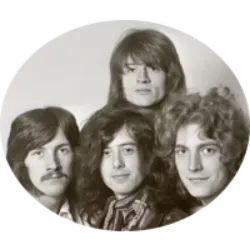
In the 1970s, rock reached its peak as a global style, but pop music emerged as a competitor. Rock underwent transformations, generating striking styles such as glam rock, characterized by basic sound and flashy clothes. Punk rock, with its aggressive attitude, also stood out, as did metal rock, which abandoned its blues roots. Bands like Led Zeppelin and Black Sabbath emerged, consolidating hard rock and heavy metal. Arena rock thrived with Queen, Kiss and others. In Brazil, Raul Seixas, Novos Baianos and Secos e Molhados gained prominence. Names like Eric Clapton and David Bowie contributed to the music scene. Punk rock emerged at the end of the decade, led by Ramones, The Clash and Sex Pistols. The period witnessed the diversification and consolidation of rock into several aspects.
In the 80s, rock went through an exciting phase
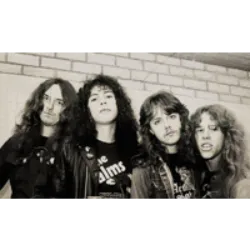
In the 80s, rock went through an exciting phase, witnessing the emergence of new forms and the consolidation of iconic bands. Initially more sophisticated, rock evolved to incorporate elements of pop culture, with bands such as Duran Duran and The Police standing out. The decade was also marked by the bold look of hard rock, with groups such as Guns N' Roses and Bon Jovi. U2 maintained its success, while heavy metal prospered with bands like Metallica, Megadeth and Slayer, as well as extreme subgenres like black metal with Venom, Bathory and Mercyful Fate. Iron Maiden, with the iconic Eddie the Head, became one of the main bands of the genre. In Brazil, successful groups included Legião Urbana, Barão Vermelho, Capital Inicial, Paralamas do Sucesso, Titãs, RPM and Plebe Rude. In the mid-1980s, Sepultura was created, considered by some to be the biggest Brazilian heavy metal band.
publicity
In the 1990s, grunge, led by Seattle bands like Nirvana
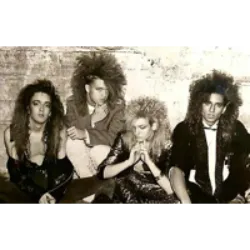
In the 1990s, grunge, led by Seattle bands like Nirvana, Pearl Jam and Alice in Chains, predominated, marginalizing heavy metal and hard rock. British Britpop brought success to bands like Oasis and Blur. Red Hot Chili Peppers, originating in the 80s, continued to be an influential rock band in the 90s. Other styles, such as funk metal with Faith No More and new metal with Korn and Slipknot, also stood out. Funk pop was represented by The Offspring and Green Day, while Marylin Manson found success.
Back
